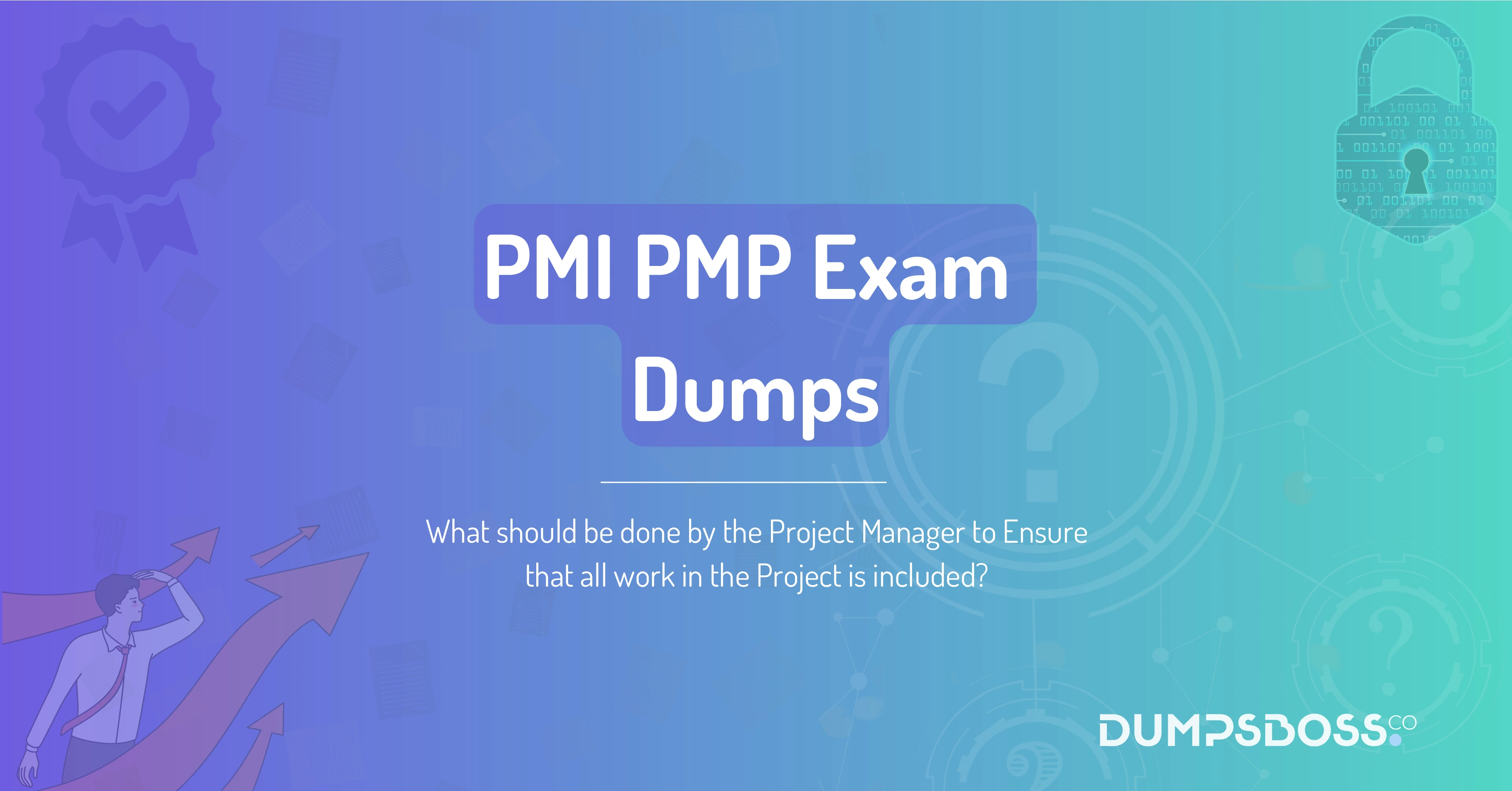Introduction of PMI PMP Exam
The Project Management Professional (PMP) certification, offered by the Project Management Institute (PMI), is one of the most sought-after credentials in the field of project management. Recognized globally, the PMP certification validates a professional's ability to manage projects efficiently, ensuring they are completed on time, within budget, and meet the desired quality standards. As industries increasingly rely on structured project management methodologies, obtaining the PMP certification can significantly enhance a professional’s career prospects.
Achieving PMP certification requires rigorous preparation, including mastering the PMBOK (Project Management Body of Knowledge) guide, understanding real-world project management scenarios, and passing a challenging exam. With the demand for certified project managers increasing across various industries, the PMP certification is an essential credential for professionals looking to advance their careers and contribute effectively to their organizations.
Definition of PMI PMP Exam
The PMI PMP exam is a standardized test designed to assess a candidate's understanding of project management principles, methodologies, and best practices. It is based on PMI’s PMBOK Guide and covers five key domains:
- Initiating: Defining and authorizing the project.
- Planning: Establishing the scope, objectives, and course of action.
- Executing: Carrying out the project plan to achieve objectives.
- Monitoring and Controlling: Tracking performance and making necessary adjustments.
- Closing: Finalizing all project activities and formally closing the project.
The Exam Dumps consists of 180 multiple-choice questions, which must be completed within 230 minutes. It evaluates candidates' knowledge of project management concepts, their ability to apply these concepts in real-world scenarios, and their competency in utilizing various tools and techniques. To qualify for the PMP exam, candidates must meet specific eligibility criteria, including educational qualifications and project management experience.
Steps the Project Manager Should Take to Ensure All Work Is Included
Ensuring that all project work is accounted for is a fundamental responsibility of a project manager. Here are key steps that should be taken to ensure comprehensive project scope coverage:
- Define Project Scope Clearly: Establish clear and detailed project objectives, deliverables, and boundaries. The project scope should be documented in a scope statement and agreed upon by all stakeholders.
- Develop a Work Breakdown Structure (WBS): Break down the project into smaller, manageable components to ensure that every task is identified and accounted for.
- Engage Stakeholders: Collaborate with stakeholders throughout the project lifecycle to gather requirements, address concerns, and confirm alignment with objectives.
- Conduct Regular Scope Reviews: Periodically review project scope documents and the WBS to identify and address any overlooked tasks.
- Utilize Project Management Software: Tools like Microsoft Project, Jira, or Trello can help in tracking work progress and ensuring that all elements of the project are accounted for.
- Manage Change Requests Effectively: Establish a formal process for handling changes to the project scope to prevent scope creep and unauthorized work.
- Monitor Deliverables Against Requirements: Continuously compare completed work against project requirements to ensure nothing is missing.
- Conduct Formal Project Closure: Ensure all project objectives have been met, obtain formal acceptance from stakeholders, and document lessons learned for future projects.
Best Practices for Scope Management in PMP
Effective scope management ensures that projects remain on track, within budget, and meet stakeholder expectations. Here are some best practices to follow:
- Involve Stakeholders Early and Often: Engaging stakeholders from the beginning ensures their requirements are captured, reducing the risk of scope changes later.
- Create a Detailed Scope Management Plan: This plan should outline how the project scope will be defined, verified, and controlled throughout the project.
- Utilize a Change Control System: Implement a structured process for reviewing, approving, and documenting changes to the project scope.
- Apply the 100% Rule in WBS: Ensure that the work breakdown structure covers 100% of the project scope, including all deliverables and necessary work.
- Conduct Regular Scope Verification: Perform routine checks to confirm that project deliverables align with the initial scope statement.
- Avoid Scope Creep: Prevent unauthorized changes by strictly managing scope modifications through formal approval processes.
- Document All Requirements and Changes: Maintaining comprehensive records of scope changes, requirements, and approvals helps in tracking and justifying any deviations.
- Train the Project Team on Scope Management: Educating team members about scope management principles helps in ensuring adherence to project plans and avoiding unnecessary work.
- Use Project Management Tools for Visibility: Software solutions provide real-time insights into project progress, helping to ensure scope compliance.
- Perform Post-Project Reviews: Analyzing scope management effectiveness post-project completion can provide valuable insights for future projects.
Conclusion
The PMI PMP exam is a prestigious certification that validates a project manager’s expertise in handling complex projects efficiently. It assesses candidates' knowledge across essential project management domains and ensures they are equipped with the skills needed for successful project execution.
A key component of project success is ensuring that all work is included within the project scope. Project managers must follow a structured approach, including defining the scope clearly, using a work breakdown structure, engaging stakeholders, and managing scope changes effectively. By implementing best practices for scope management, project managers can minimize risks, prevent scope creep, and deliver projects that meet stakeholder expectations.
Aspiring PMP-certified professionals should focus on mastering these concepts and preparing diligently for the exam. With the right knowledge and strategies, they can enhance their project management skills, improve job prospects, and contribute to the success of their organizations. For those looking for reliable study materials, DumpsBoss offers high-quality resources to help candidates prepare effectively for the PMP exam and achieve certification success.
Special Discount: Offer Valid For Limited Time “PMP Exam” Order Now!
Sample Questions for PMI PMP Dumps
Actual exam question from PMI PMP Exam.
What should the project manager do to ensure that all work in the project is included?
A. Create a detailed project schedule
B. Develop a comprehensive Work Breakdown Structure (WBS)
C. Assign tasks to team members early
D. Conduct daily stand-up meetings


